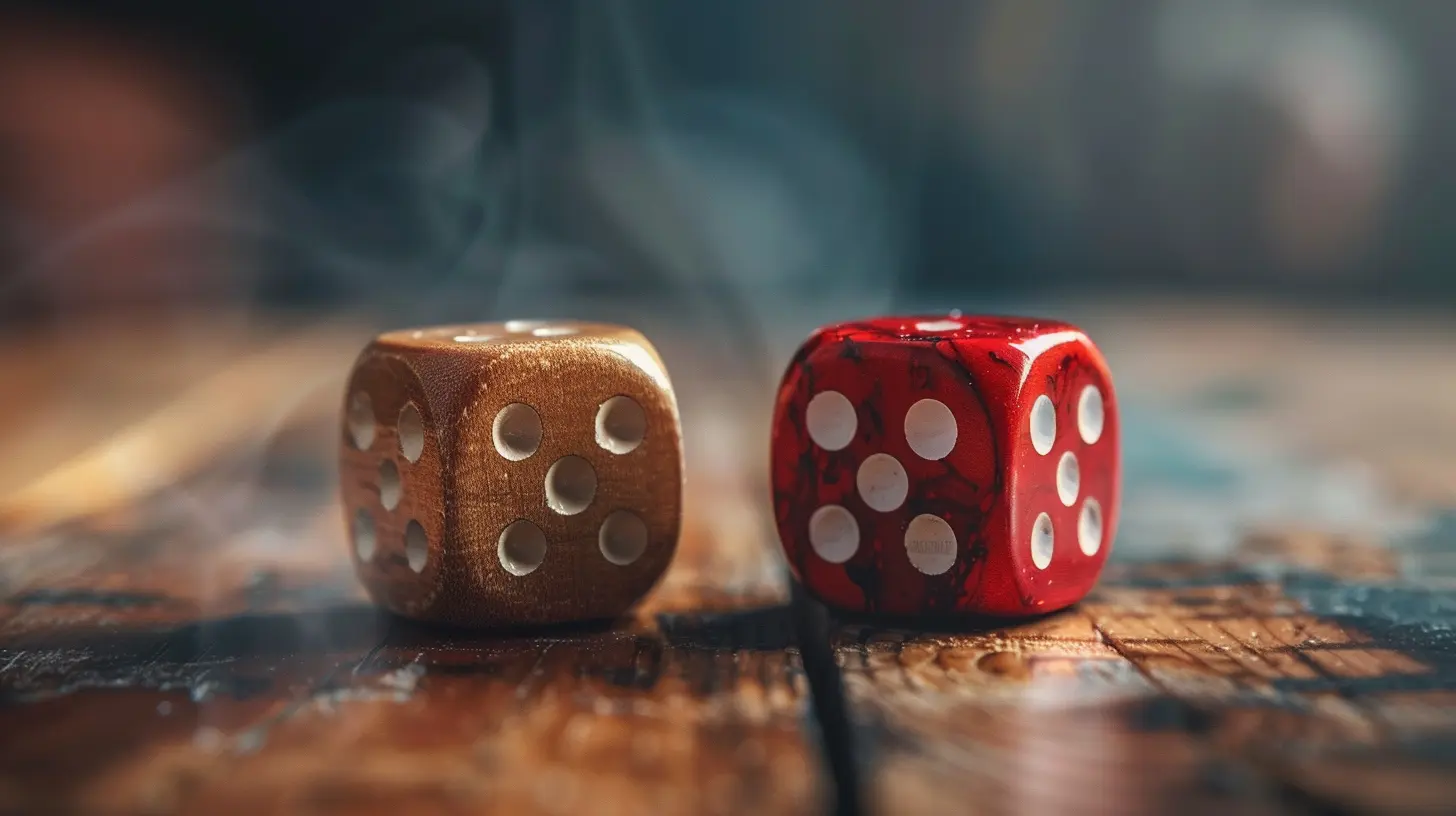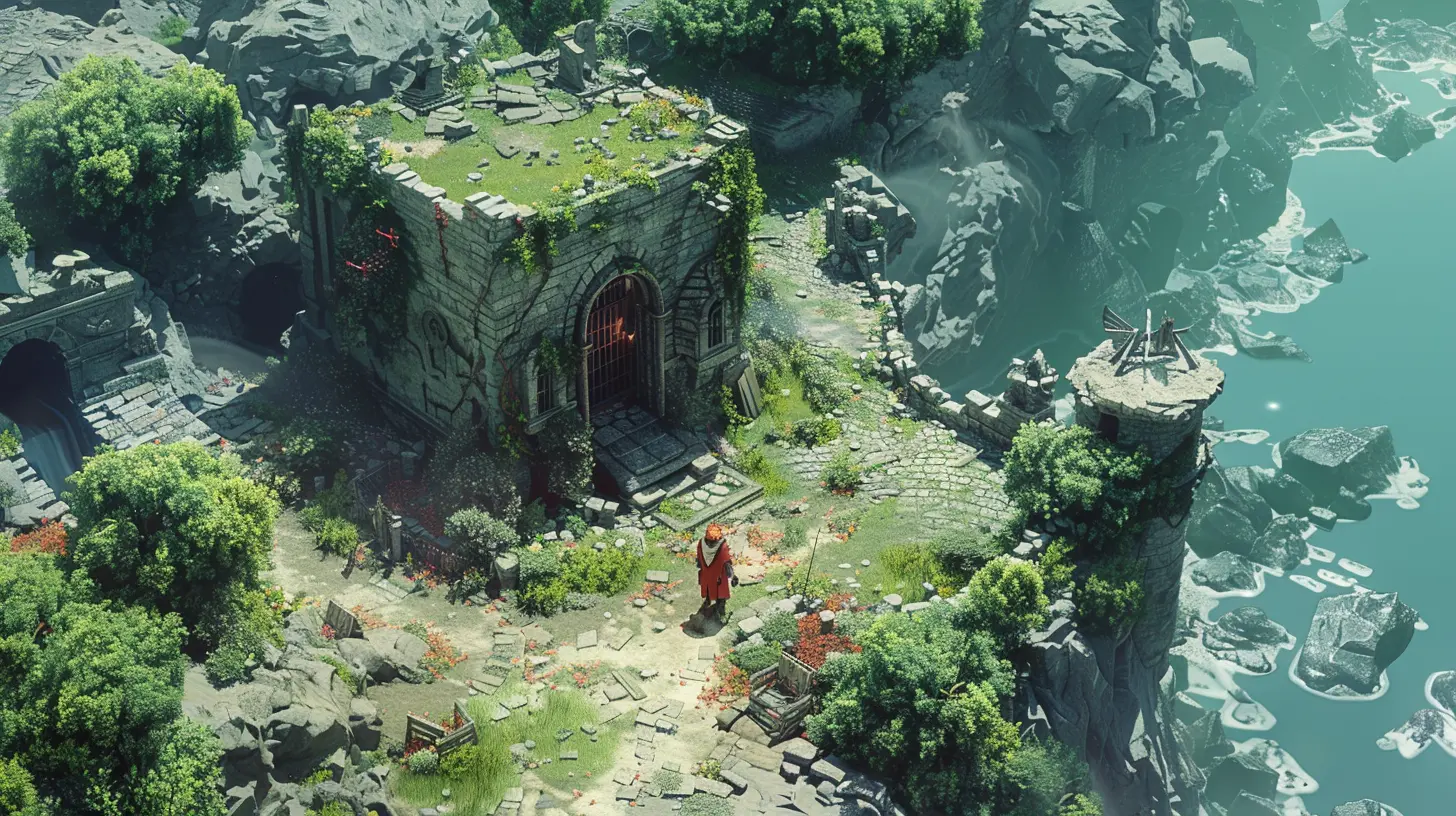Skill-Based vs. RNG Mechanics: Finding Harmony in Game Design
19 September 2025
When we jump into a game, whether it's a sweaty multiplayer match or a chill single-player experience, one of the biggest things that shapes how we play (and how we feel about playing) is how much control we actually have over what happens. That’s where the age-old debate begins: Skill-Based gameplay versus Random Number Generator (RNG) mechanics.
So, what’s the big deal? Why do so many gamers throw their hands up in frustration at RNG, while others celebrate the unpredictability it brings? And how do devs strike a balance? Let's dive deep into the heart of this battle and figure out how both elements can live together in harmony.
What Are Skill-Based Mechanics?
Let’s kick things off with skill-based gameplay. These are systems that reward player mastery, timing, strategy, and precision. Think of games like CS:GO, Dark Souls, or Street Fighter. Your win or loss is almost entirely in your hands. Mess up? That’s on you. Pull off a clutch play? That’s your skills shining.In short, skill-based mechanics:
- Rely on consistency and player decision-making
- Offer a high skill ceiling
- Reward practice and progression in a meaningful way
Imagine shooting hoops. The more you practice, the better you get at nailing those threes. That’s skill-based design in action.
What’s the Deal With RNG Mechanics?
Now, picture this: You've got a perfectly set-up fight in a turn-based RPG. Your character pulls off a powerful attack, but... misses. Why? Because the game flipped an invisible coin and decided it just wasn’t your day.That’s RNG for you.
RNG, or Random Number Generator, adds randomness and unpredictability. It’s the dice roll behind the scenes. Sometimes it gives you a lucky crit hit, a rare loot drop, or a surprise twist in gameplay. Other times, well… it humbles you.
RNG elements can include:
- Loot drops (like in Diablo or Borderlands)
- Critical hit chances
- Card draws in deck-builders
- Procedurally generated levels or encounters
As frustrating as it can be, RNG keeps things spicy. Would The Binding of Isaac be as fun if every run played the same?
Why Do Developers Use RNG?
Simple. RNG adds variety, replayability, and excitement.In a purely skill-based game, once you've mastered the mechanics, the encounters can start to feel... predictable. That’s when randomness saves the day. It gives players unexpected challenges and keeps content feeling fresh, even after dozens of hours.
Imagine a slot machine. The dopamine hit from a good spin? That’s RNG magic. Game developers sprinkle that same unpredictability to make sure players keep coming back for more.
Also, RNG allows less experienced players to sometimes beat veterans, creating those “wow” moments that are fun (unless you're the one on the receiving end).
The Tension Between Skill and RNG
Let’s be honest—players don’t like losing due to “bad luck.” You can train for hundreds of hours, but if RNG decides today isn’t your day, it can feel unfair. On the flip side, too much predictability can make a game stale.So what's the sweet spot?
The real challenge for developers is blending these mechanics in a way that feels fair, fun, and rewarding. Players should feel like their decisions matter, but also be ready for an occasional curveball.
Examples of Skill-Based Games with RNG Elements
Let’s take a look at a few games that have managed to strike a beautiful balance.1. Hades
Supergiant Games hit gold with Hades. On the surface, it’s a fast-paced action roguelike that clearly favors skill. You need to dodge, aim, and time your attacks to survive.But RNG? Oh, it’s there. From the boons you receive from gods to enemy compositions and loot drops, each run feels totally different. Yet, you never feel completely at the mercy of chance. Your skill still determines how far you go.
2. Fortnite
Battle royales are one big dice roll mixed with skill. Where you land, what loot you find—it’s all random. But building, shooting, and strategic movement? That’s all you. Because of this blend, no two matches are ever the same, and that unpredictability keeps players on their toes.3. Slay the Spire
Card games are naturally RNG-heavy, but Slay the Spire is a masterclass in giving players tools to reduce randomness. You start with a semi-random deck, but through smart decisions and planning, you can craft a build that feels powerful and consistent. Skill meets chance in a dance of strategy.Striking the Right Balance in Game Design
So how do devs get RNG and skill-based mechanics to play nice? Here are a few design principles that help:1. Controlled Randomness
Give players a window into the randomness. Let them influence outcomes. For example, in XCOM, even if a shot has a 95% chance to hit, you can strategize to improve your odds. The randomness is there, but you can shift the odds in your favor.2. Failing Forward
Don’t punish players too harshly for bad RNG. Instead, use it as a way to tell a story or create interesting tension. Rogue-lites like Dead Cells embrace this by letting you carry over progress, even after a bad run.3. Replayability Over Frustration
Randomness should enhance replayability, not frustrate. It should encourage players to come back for more, not rage quit. The key is making sure that even a bad run feels like a learning experience, not a waste of time.4. Transparent Systems
When players understand RNG, they’re more likely to accept it. Show the odds, explain the mechanics. Don’t hide behind a curtain.When RNG Goes Too Far
Of course, RNG can be taken too far. If it feels like your decisions don’t matter, or if high-stakes moments are dictated solely by chance, player engagement drops fast.Ever lost a tournament match because of a random crit? Yeah, that burns.
Games like Mario Party are built on chaos and chance—but that’s the expectation. In competitive games, RNG should be subtle. It should flavor the match, not dominate it.
So... Which One Is Better?
Honestly? Neither.Skill-based mechanics and RNG both serve different purposes. It’s not about picking sides. It’s about context and balance.
- Want a competitive, skill-driven experience? Lean more toward deterministic mechanics.
- Want replayability, wacky moments, and unpredictability? Add a dash of RNG.
At the end of the day, the best games find a way to marry both systems so that players always feel like they’re on a thrilling ride—but with their hands still on the wheel.
The Future of Game Design: Dynamic Hybrids
We’re already seeing designers push the boundaries by mixing both worlds. Games are becoming more adaptive, with procedural elements grounded by tight core mechanics.AI-driven systems, customizable difficulty, and dynamic world states are combining randomness and skill in ways we’ve never seen before.
Games like Returnal, Spelunky, and Into the Breach are shining examples of how much depth and satisfaction this combo can bring when done right.
Final Thoughts
Skill and luck—they’ve been intertwined since the dice-rolling days of tabletop games. In modern game design, it's all about giving players a sense of control while keeping the experience fresh and exciting.So next time RNG decides to drop a legendary loot item at just the right moment or throws a monkey wrench into your perfect strategy, take a step back and embrace the chaos.
Because the truth is: Whether you’re outplaying your opponent or laughing at the madness of a random twist, you’re still part of a brilliantly designed system meant to entertain, challenge, and surprise.
And who doesn’t love a little bit of both?
all images in this post were generated using AI tools
Category:
Game MechanicsAuthor:

Leandro Banks
Discussion
rate this article
1 comments
Layne McMeekin
“Skill wins; RNG chills!”
September 19, 2025 at 3:51 PM

Leandro Banks
Thank you! Striking a balance between skill and RNG can create dynamic gameplay that appeals to a broader audience.


